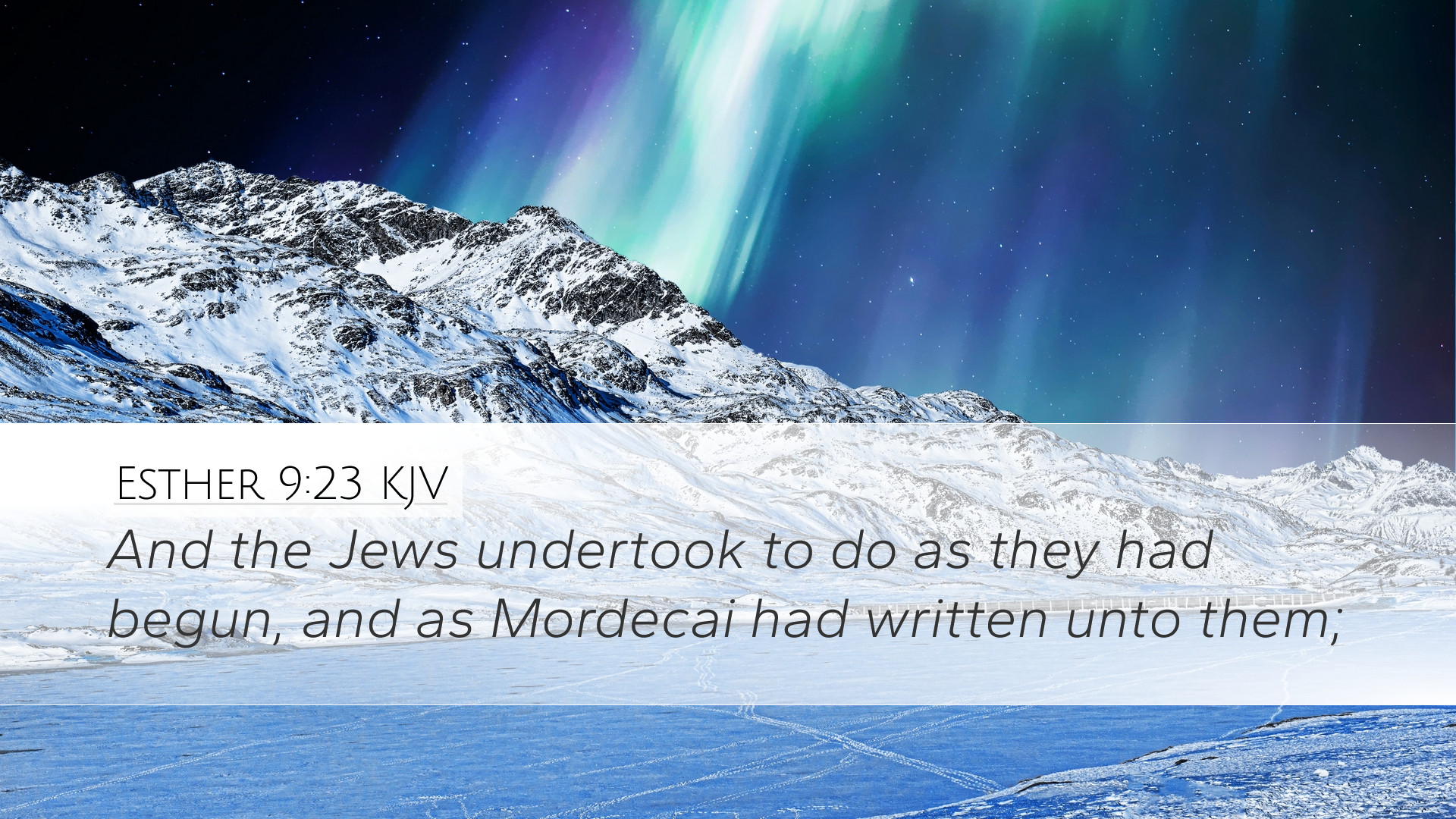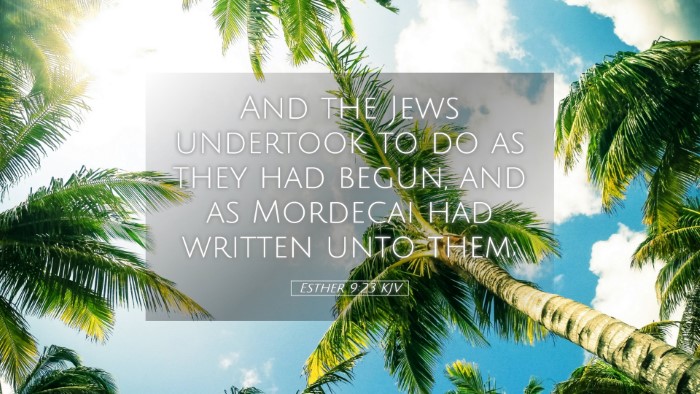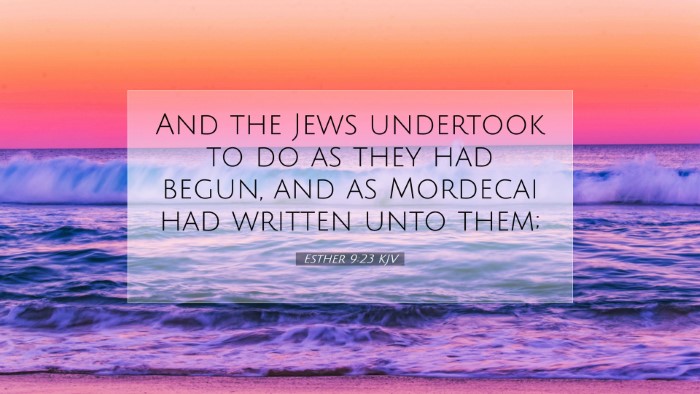Commentary on Esther 9:23
Verse Text: "So the Jews undertook to do as they had begun, and as Mordecai had written unto them."
Introduction
The significance of Esther 9:23 lies in the cultural and religious shift it represents within the Jewish community following their deliverance from impending destruction. To fully appreciate the depth of this verse, one must explore it in light of the historical context, thematic elements, and commentary provided by esteemed biblical scholars like Matthew Henry, Albert Barnes, and Adam Clarke.
Historical Context
At the heart of Esther's narrative is the plight of the Jews under the Persian Empire, marked by a plot to annihilate them orchestrated by Haman. With the intervention of Queen Esther and her cousin Mordecai, the Jewish people are granted the right to defend themselves. Esther 9:23 serves as a pivotal moment, highlighting the resolve of the Jews to adhere to the instructions provided by Mordecai, reflecting their commitment to both their identity and survival.
The Importance of Obedience
Matthew Henry's Perspective: According to Henry, the Jews’ undertaking to follow Mordecai's decree demonstrates their newfound identity and allegiance to God’s providence. His commentary emphasizes that true obedience stems from an understanding of the past. It is the culmination of their past struggles and victories that fuels their present actions
Mordecai's Influence
Albert Barnes' Insights: Barnes highlights Mordecai's pivotal role, illustrating how his leadership and wisdom guided the Jewish people in their time of crisis. His instructions not only promote self-defense but also foster a sense of unity and purpose among the Jews, indicating how effective leadership can inspire and mobilize a community.
Thematic Analysis
Esther 9:23 encapsulates several themes prevalent throughout the Book of Esther—deliverance, identity, and community. The act of undertaking what they had started signifies a collective reaffirmation of their identity as God’s chosen people.
The Significance of Community
Adam Clarke's View: Clarke connects the actions of the Jews to the communal nature of Jewish culture. He posits that this event is not merely a personal decision but a corporate experience that intertwines their fate with that of the community. This signifies that faith and action are collective undertakings, reinforcing the idea of shared destiny.
Theological Implications
This verse touches on the broader theological principle of divine intervention and human response. The Jews’ decision to act according to Mordecai’s directives indicates a belief in God’s sovereignty and faithfulness, responding to their deliverance with action and intentionality.
Faith in Action
The commentary collectively underscores the theme that faith necessitates action. As the Jews undertake what they have resolved to do, they embody the understanding that belief without corresponding deeds is inadequate. Mordecai’s instructions serve as a call to enact their faith practically, leading to their survival and continued identity as a people.
Conclusion
In summary, Esther 9:23 serves as a testament to the importance of obedience, spiritual identity, and communal action in the Jewish faith narrative. Drawing from the insights of Matthew Henry, Albert Barnes, and Adam Clarke, it is compelling to see how obedience to God’s direction—through human agency—leads to the survival and thriving of a community. As modern-day theologians, pastors, and students reflect on this verse, may they find encouragement to actively embody their faith within their own communities, understanding that their actions contribute to the broader tapestry of God’s redemptive plan.


